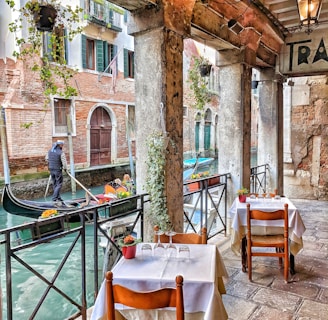Learn 50 Essential Italian Verbs for Beginners (Part 1)
Join me in the latest episode of 'Italiano Chiaro – Italian Everyday' as we explore 50 essential Italian verbs for beginners. This episode covers the first 25 verbs, crucial for everyday conversations. Start speaking Italian with confidence!
GRAMMATICA


Ciao a tutti e benvenuti a un nuovo episodio di “Italiano Chiaro! I’m Sarah, and today we’ll be learning the 50 most useful Italian verbs for beginners. This episode is divided into two parts: in the first part, we’ll go through the first 25 verbs, and in the second part, which I’ll be releasing soon, we’ll cover the remaining 25. These verbs are essential for everyday conversations, and they will help you get started speaking Italian right away.
Let’s start with the first 25 verbs. I’ll explain their meanings and give you some practical examples. Ready? Let’s begin!
Essential Action Verbs
First, let’s look at some of the most basic verbs. These will help you get started with simple phrases.
Essere (to be)
• Essere is one of the most important verbs. It’s used to describe identity, state, and qualities.
• Example: Io sono felice (I am happy).
Avere (to have)
• Avere is used for possession and also in many idiomatic expressions.
• Example: Ho fame (I’m hungry).
Fare (to do, to make)
• This verb is used for actions, activities, and creating things.
• Example: Faccio una torta (I’m making a cake).
Andare (to go)
• Andare is used to express movement or travel.
• Example: Vado al supermercato (I’m going to the supermarket).
Vedere (to see)
• Vedere is used to talk about seeing something or meeting someone.
• Example: Vedo un film (I see a movie).
• Conjugation: Io vedo, tu vedi, lui/lei vede, noi vediamo, voi vedete, loro vedono.
Verbs for Everyday Situations
Host: Next, let’s look at some verbs that come up frequently in daily conversations.
Mangiare (to eat)
• Example: Mangio una pizza (I’m eating a pizza).
Bere (to drink)
• Example: Bevo un caffè (I’m drinking a coffee).
Parlare (to speak, to talk)
• Example: Parlo italiano (I speak Italian).
Lavorare (to work)
• Example: Lavoro in un ufficio (I work in an office).
Studiare (to study)
• Example: Studio italiano (I study Italian).
Verbs for Describing Movement
Host: Now, let’s move on to some verbs that describe movement or action.
Venire (to come)
• Example: Vieni con me? (Are you coming with me?)
Arrivare (to arrive)
• Example: Arrivo alle 10 (I arrive at 10).
Uscire (to go out)
• Example: Esco con gli amici (I go out with my friends).
Entrare (to enter)
• Example: Entro in ufficio (I enter the office).
Tornare (to return)
• Example: Torno a casa (I’m returning home).
Section 4: Verbs for Thinking and Understanding
Host: Let’s look at some verbs that help you express thoughts, feelings, and understanding.
Pensare (to think)
• Example: Penso che sia una buona idea (I think it’s a good idea).
Capire (to understand)
• Example: Capisco l’italiano (I understand Italian).
Credere (to believe)
• Example: Credo in te (I believe in you).
Imparare (to learn)
• Example: Imparo a nuotare (I’m learning to swim).
Ricordare (to remember)
• Example: Mi ricordo di te (I remember you).
Verbs for Everyday Life
Host: Now, let’s go through some verbs that will come in handy during daily activities.
Dormire (to sleep)
• Example: Dormo 8 ore ogni notte (I sleep 8 hours every night).
Svegliarsi (to wake up)
• Example: Mi sveglio alle 7 (I wake up at 7).
Vestirsi (to dress)
• Example: Mi vesto velocemente (I dress quickly).
Lavare (to wash)
• Example: Lavo i piatti (I wash the dishes).
Pulire (to clean)
• Example: Pulisco la casa (I clean the house).
Interactive Exercise: Let’s Practice!
Host: Now, let’s pause and do a quick exercise! I’ll say a verb in English, and you’ll translate it into Italian and use it in a sentence. Ready? Here we go!
To eat
• Answer: Mangiare
To speak
• Answer: Parlare — Parlo italiano (I speak Italian).
To go out
• Answer: Uscire — Esco con gli amici (I go out with friends).
To learn
• Answer: Imparare — Imparo a nuotare (I’m learning to swim).
Host: Great job! Keep practicing these verbs, and they’ll become second nature to you. Stay tuned for the second half of this episode where we’ll cover 25 more essential Italian verbs. Remember, consistency is key, and every new verb is another step toward fluency!
